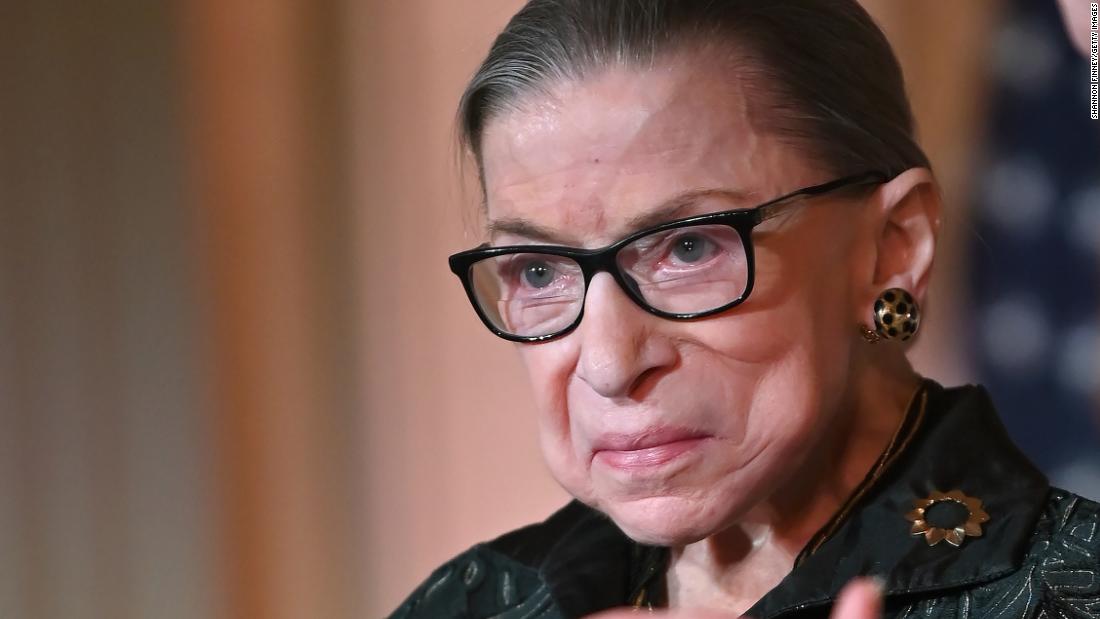By Olivia Yin
The passing of the Supreme Court Judge, Ruth Bader Ginsburg (RBG) on September 18, 2020, struck the hearts of people across the country. She died at 87 due to complications with metastatic pancreatic cancer. In her time in office, she held a crucial role in advocating for women’s rights and against sex discrimination. Ginsburg was the first Jewish woman and second female to hold a position in the Supreme Court.
Early in Ginsburg’s life, her mother died from cancer right before her high school graduation. RBG graduated from Cornell University in 1954, top of her class. From there, she married and attended Harvard Law School where she balanced being a mother and a full-time student. However, there was a lot of discrimination against women and a lack of representation in the industry. She transferred to Columbia Law and graduated top in her class yet again. Still, as a woman, she struggled to find a job despite her amazing academic record.
Finally, she got a position as a professor at Rutgers Law and then Columbia Law and became the first woman at the school to receive tenure. During this time, she was also the Director of the Women’s Rights of the American Civil Liberties Union (ACLU) fighting for equal rights.
She argued that sex discrimination affects all people. In one famous case, Weinberger v. Wiesenfeld (1975), she won social security child support for a widower, when that benefit was previously only provided for widows. After being appointed to the Supreme Court in 1993, by Bill Clinton, she wrote the landmark decision for United States v. Virginia case, which determined that the Virginia Military Institute could not refuse women as students.
At her death, RBG said, “My most fervent wish is that I will not be replaced until a new president is installed.” She had hoped to live until the next president was elected to step down. Unfortunately, her pancreatic cancer beat her to it. Now, Trump and Mitch McConnell are pushing ahead her replacement as quickly as possible, although McConnell had stopped Obama from electing his Supreme Justice nominee for a year saying that in an election year the public should have a say in the decision.
Still, there is hope for many through this darkness. RBG has inspired so many people. A sophomore at IHS, Lucy O’Connor, shared her response to RBG’s death: “To be honest, RBG’s death was extremely tragic to hear.”
“When I heard the news I immediately started thinking about where our country and Senate will be without her, especially with Mitch McConnell going against her dying wish and trying to replace her before the election. It truly scares me.”
Similarly, Allie Rosenberg, a senior at IHS responded: “I found out from my mom coming into my room and telling me. We were both shocked and devastated to say the least. I remember my mom being genuinely scared to see what would come from this and both of us just at a loss of words about it all.”
Alex Bjorgvinsson, a senior at IHS says, “Ruth Bader Ginsburg was someone that I always looked up to throughout my life, as a hero and role model. Her contributions to protecting and advocating for fundamental human rights is something that will live forever, and her strength of character through her own personal struggles as well as in being a supreme court justice stood as a beacon of light for all Americans. When I heard of her death, I was shocked. While she wasn’t perfect, it’s important that we as a society continue her legacy of improving the lives of all peoples and strive toward a brighter future, just as she did.”



Be First to Comment